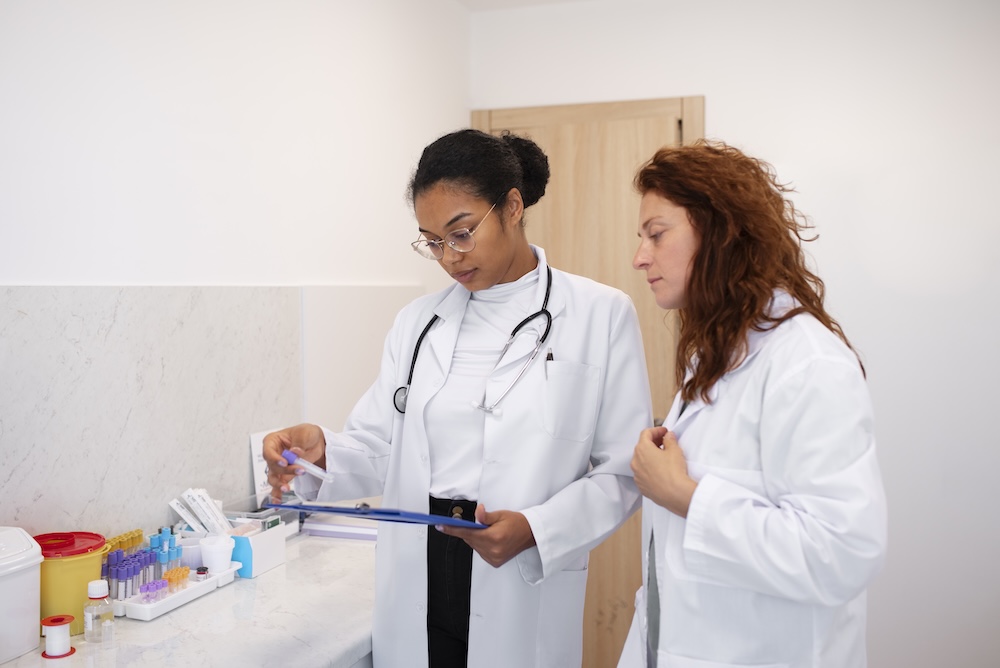News
‘Alarming’ rise in HIV diagnosis rates needs attention, gov says

Alarming increases in HIV diagnoses among women require urgent government focus, with new cases rising 33 per cent between 2019 and 2024, MPs have warned.
Sexual health services are “extremely stretched” with funding “pared to the bone”, threatening the UK’s ability to meet the United Nations AIDS 2030 zero transmission target, according to the Women and Equalities Committee report.
While new diagnoses fell among gay and bisexual men, significant disparities emerged in other groups.
New diagnoses in 2024 compared with 2019 were 35 per cent lower in men exposed through sex with men (1,238 to 810), but 26 per cent higher in females exposed through sex with men (596 to 749).
Overall, new diagnoses decreased 14 per cent in men but increased 33 per cent in females.
Black African and Asian populations saw increases of 80 per cent and 40 per cent respectively, while diagnoses among people of white ethnicity decreased 40 per cent.
The report warned the interim target of an 80 per cent reduction by 2025 is unlikely to be met.
Sarah Owen, chair of the Women and Equalities Committee and Labour MP, said: “With sexual health services stretched as they are, the Government will struggle to meet its adopted United Nations AIDS target of zero HIV transmissions by 2030.
“The forthcoming HIV action plan needs to include additional funding to that already earmarked if sexual health services are to be able to tackle HIV transmission effectively.
“Increases in HIV diagnoses among women are alarming and the action plan must include steps to address these concerns.
“Given the high cost to the NHS of late diagnosis, a fully resourced opt-out community testing programme in areas of high prevalence would represent a significant long-term saving.
“It should be introduced as soon as possible.”
MPs recommended expanding emergency department opt-out testing programmes to GP practices, abortion clinics, women’s health hubs, cervical screening centres and sexual health clinics.
Such expansion should include locally tailored campaigns targeting specific groups.
Just two thirds of heterosexual men and women are having their PrEP needs identified at sexual health services, with even fewer having them met.
PrEP is antiretroviral medication given to HIV-negative people to reduce infection risk.
The committee called for national digital access to PrEP to address delays in accessing sexual health services.
PrEP should also be available through community pharmacies and primary care, with increased walk-in appointments.
Ministers should enable nurses and health advisers to initiate PrEP prescriptions and provide targeted training to reduce missed opportunities, particularly in Black African communities.
Additional sexual health funding beyond that already earmarked for the public health grant will be needed to support increased testing.
Given the high NHS costs of late diagnosis, upstream community testing funding would deliver significant long-term savings, the report stated.
The report also highlighted concerning drops in testing among young people alongside decreased contraception use.
MPs called for public awareness campaigns on testing and contraception specifically targeting this age group.
Opt-out testing expansion to further emergency departments should automatically include hepatitis B and C tests.
Metro mayors should consider whether shared postal testing services across combined authorities might improve access and value compared with current individual local authority approaches.
Owen added: “Meeting the 2030 target requires focus on testing and improved access to PrEP, yet we know that people are struggling to access it, particularly if they live outside of major cities.
“As the Committee’s new report on tackling HIV transmission recommends, the Government should roll out digital access to HIV pre-exposure prophylaxis (PrEP) antiretroviral medication nationally to help address unacceptable delays and challenges in accessing sexual health services and prescriptions.”
“The roll out of injectable PrEP has the potential to be a huge step forwards in the battle against HIV.
“We urge it to be made available to vulnerable people, particularly women who may face barriers in accessing daily tablets.”
-

 News4 weeks ago
News4 weeks agoAI embryo selection tool wins European approval
-

 News2 weeks ago
News2 weeks agoOpinion: Not ‘just stress’ – How hormonal changes affect women’s brain function
-

 News4 weeks ago
News4 weeks agoTestosterone patch shows promise for menopausal women
-

 Features3 weeks ago
Features3 weeks agoTop 7 drug-free solutions for managing PMS and PMDD in in 2025
-

 Features4 weeks ago
Features4 weeks agoFrom SEO to GEO: How women’s health brands can get found in the age of AI
-

 News4 weeks ago
News4 weeks agoFDA approves new menopause drug to treat hot flashes and night sweats
-

 News4 weeks ago
News4 weeks agoSpain faces protests over mammogram scandal
-

 News4 weeks ago
News4 weeks agoMost midlife women with menopause symptoms don’t seek care, research finds
































